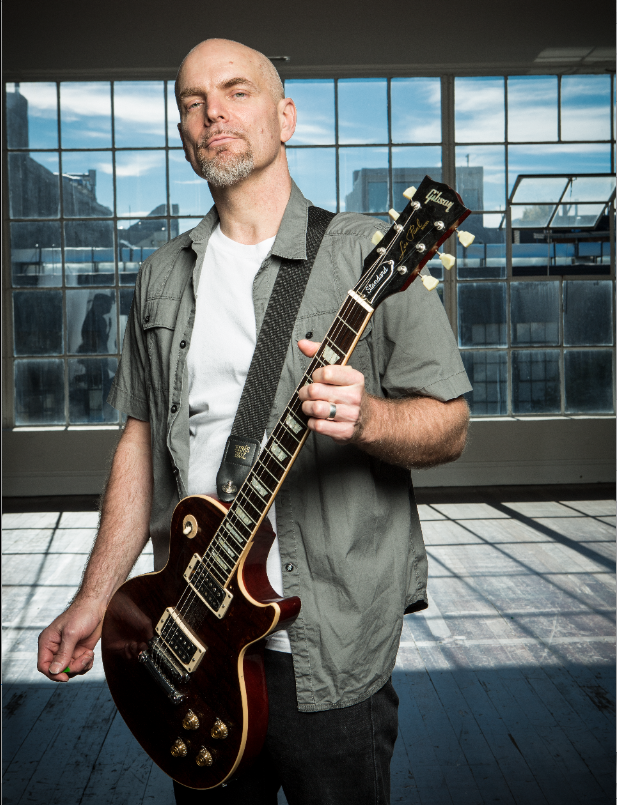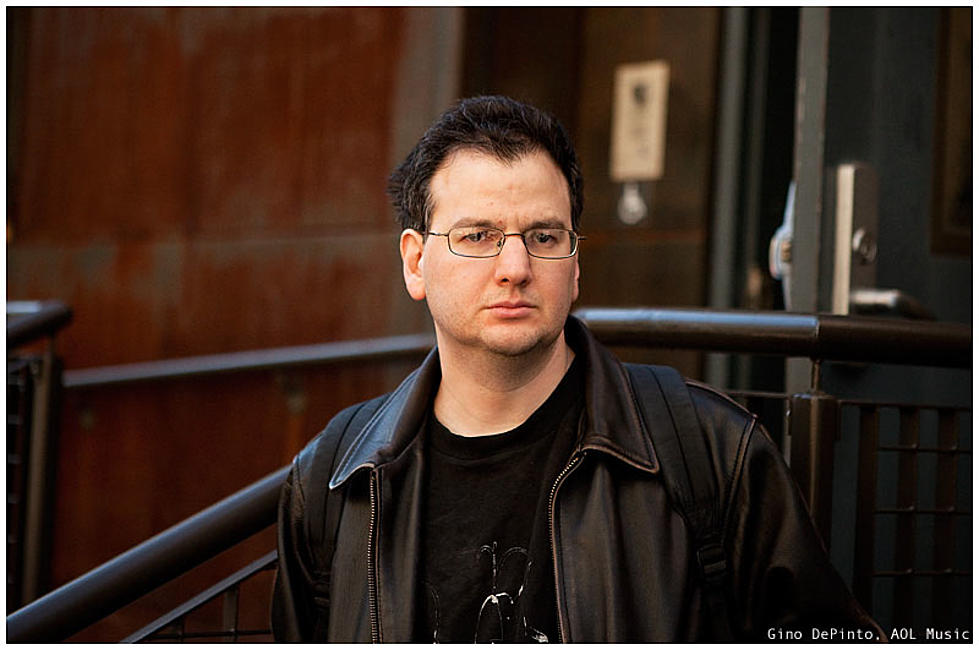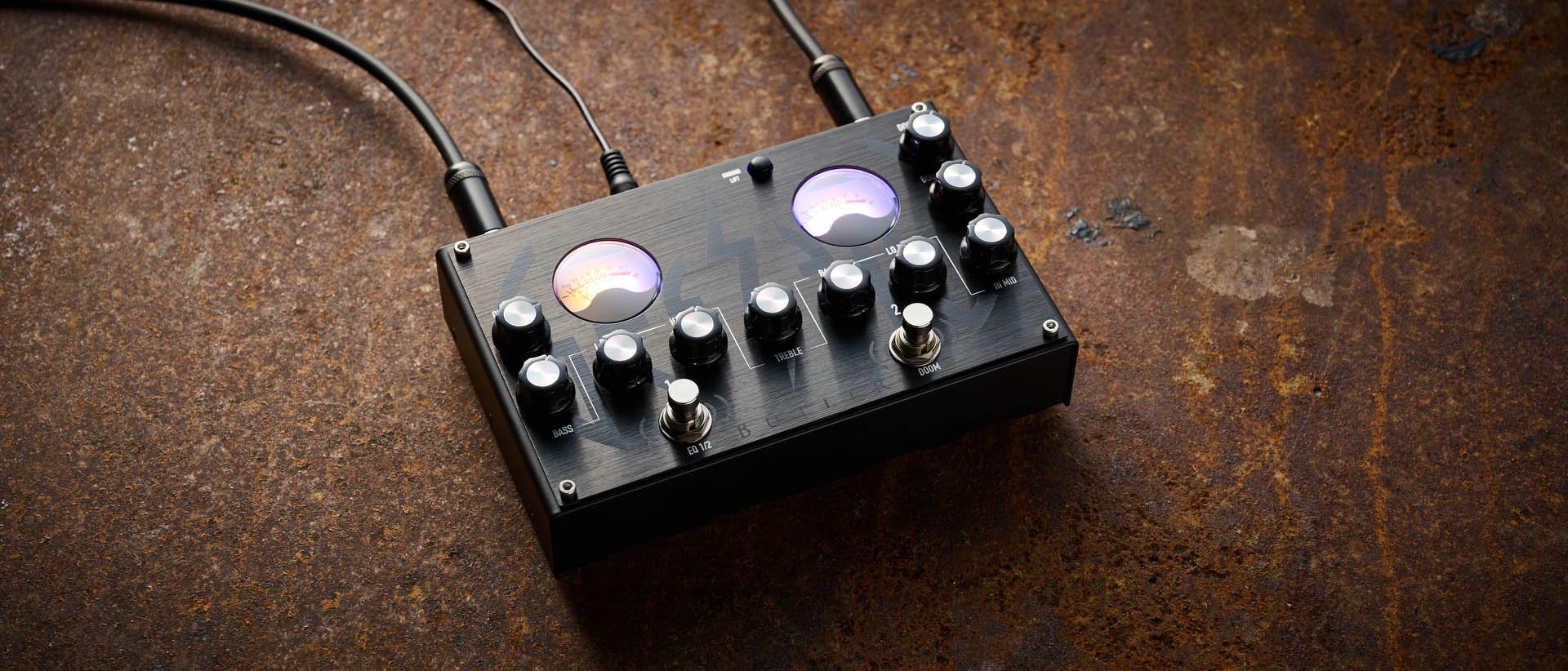Faith No More's Jon Hudson: "Music Is Supposed to Be a Big Part of Your Life, It's Not Supposed to Consume Your Life"

While Faith No More were rehearsing for their 2011 European tour, bassist Bill Gould played his bandmates a new song, the ominous, theatrical “Matador.”
Impressed, FNM learned the number and debuted it at a show in Buenos Aires on November 8.
The crowd reacted the way most audiences do when they don’t know a tune. Even so, the performance was the catalyst that triggered the notoriously noncommittal Faith No More into action.
“When we got back from tour it just seemed like the logical step to work on some more material,” says guitarist Jon Hudson.
Slowly but surely other songs surfaced, including the propulsive “Superhero” and the weird, haunting “Motherfucker,” both of which the band debuted in London on July 4, 2013. Less than two years later, Sol Invictus, Faith No More’s seventh studio album (and first in almost 18 years), is finally out and the songs rival the band’s best material.
In addition to the aforementioned numbers, there’s the surreal title track, which is reminiscent of Tom Waits crossed with Tricky, “Sunny Side Up,” a sentimental ballad that abruptly morphs into a concoction of hard rock and funk, and the schizophrenic “From the Dead,” which contrasts a dusky bluesy rhythm with spare bells, slide guitar, melodramatic singing and soaring background vocals. We talked with guitarist Jon Hudson about the creative process for Sol Invictus, what he did during the band’s 11-year touring hiatus and how technology has rocked his world.
Bill Gould acted as the primary writer, schedule coordinator and producer of Sol Invictus.
All the latest guitar news, interviews, lessons, reviews, deals and more, direct to your inbox!
He definitely made this thing happen. A couple of years ago, he got together to work with [drummer] Mike Bordin. Shortly thereafter, I started getting demos and working on the songs with them. Then gradually everyone else joined in.
How did it feel to be working on new material after so many years?
It was like a continuation of what we had already done. It wasn’t foreign at all.
Once you started working, was there a sense of urgency to finish the album?
Not at all. We took our time. There was no deadline to meet and no one knew we were making a record. That took a lot of the pressure off.
How do you approach playing the material written by former guitarists Jim Martin and Trey Spruance, and how did you want to make your own mark with the songs you helped write?
Live, I play what’s on the records and capture those tones. I don’t feel like it’s important for me to put my stamp on any of the songs, even the ones I worked on. I just play to serve the material.
When did you first meet Faith No More?
A former bandmate introduced me to them 1989. Then Bill helped me out with a demo after they did Angel Dust. I got the feeling things were not working out with Jim. Bill gave me a demo tape to work on at one point. I worked on several songs and sent them to him, but they ended up working with Trey, which was the right decision.
How did you end up joining the band?
Bill called me in early 1996 and asked me if I would be interested in joining the band. I didn’t audition, I just jumped in and started working with Bill. I gave him a cassette full of ideas and some of them wound up on Album of the Year, which was really exciting.
There was a lot of enmity between some of the members at the time. Was it uncomfortable to work in that environment?
I viewed everything as an opportunity. I could see the pressure of trying to deliver another great record was wearing on some of the guys because they were putting their energies into other areas or projects. I felt like this might be their last record, so I wanted to make sure I enjoyed it as much as I could.
What did you do after the band broke up in 1998?
I got into property management in the Bay area. I needed a paycheck and it allowed me to reexamine the good fortune I already had.
A lot of people would have sour grapes about having risen to the top only to return to the nine-to-five grind.
Music is supposed to be a big part of your life, it’s not supposed to consume your life. That’s hard to imagine when you’re really striving to make it, but that’s what I learned.
How did you end up rejoining the band in 2009?
I quit my job because I was tired of it. A few months later, I got word that Faith No More was starting up again. So it was very fortuitous and good timing.
How is being in Faith No More today different than it was in the late Nineties?
Everyone is more patient now, and as far as recording goes, we have all these new tools so the options are almost unlimited.
Did you use different gear to record Sol Invictus than you used for Album of the Year?
I played my Les Paul and I used my old JCM800, but we used a DI track on just about everything. We worked with a Kemper, so Bill was able to add certain frequencies to the existing tracks that might not have been so pronounced.
How is everyone getting along these days?
We’re really enjoying ourselves. We’re able to play big concerts and a lot of people are interested in our record. How can you be unhappy about that?
Photo: Jimmy Hubbard
Jon is an author, journalist, and podcaster who recently wrote and hosted the first 12-episode season of the acclaimed Backstaged: The Devil in Metal, an exclusive from Diversion Podcasts/iHeart. He is also the primary author of the popular Louder Than Hell: The Definitive Oral History of Metal and the sole author of Raising Hell: Backstage Tales From the Lives of Metal Legends. In addition, he co-wrote I'm the Man: The Story of That Guy From Anthrax (with Scott Ian), Ministry: The Lost Gospels According to Al Jourgensen (with Al Jourgensen), and My Riot: Agnostic Front, Grit, Guts & Glory (with Roger Miret). Wiederhorn has worked on staff as an associate editor for Rolling Stone, Executive Editor of Guitar Magazine, and senior writer for MTV News. His work has also appeared in Spin, Entertainment Weekly, Yahoo.com, Revolver, Inked, Loudwire.com and other publications and websites.

